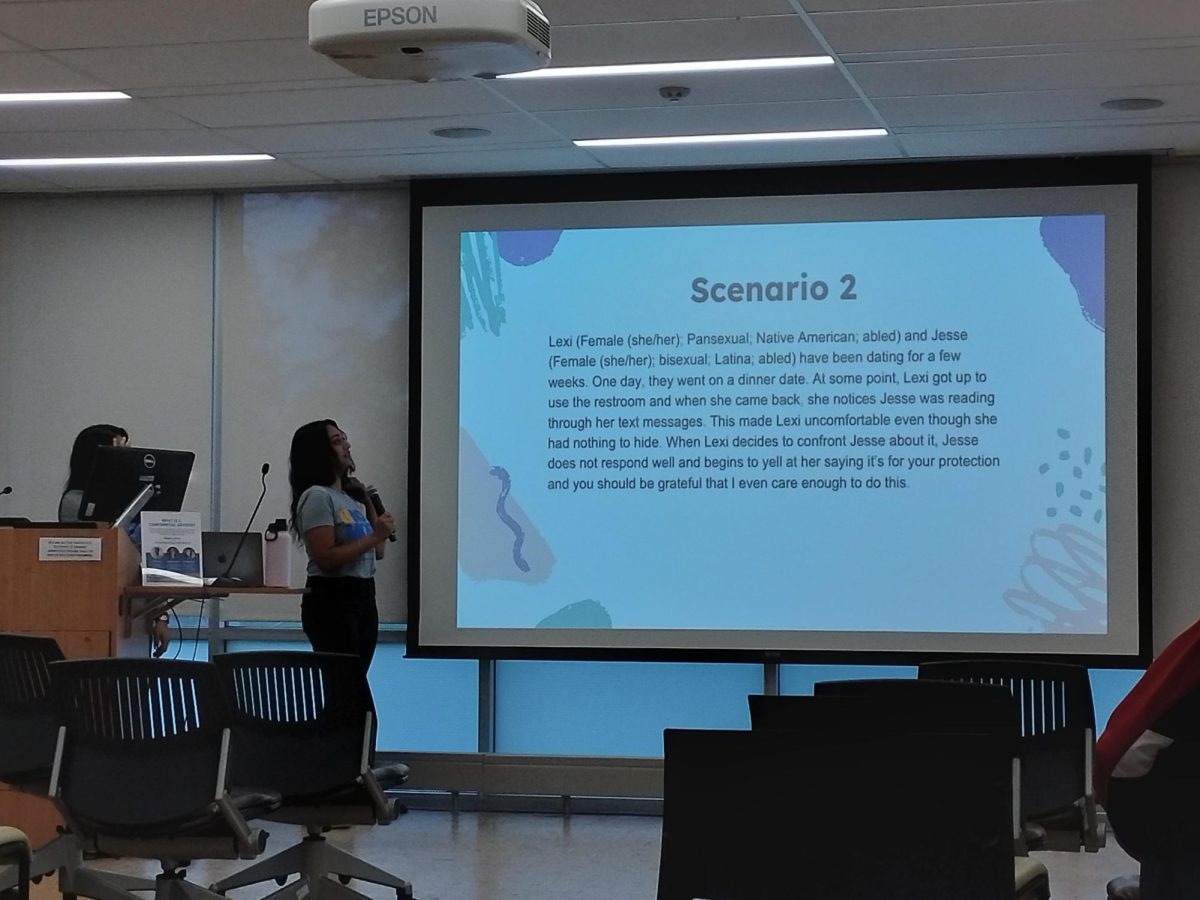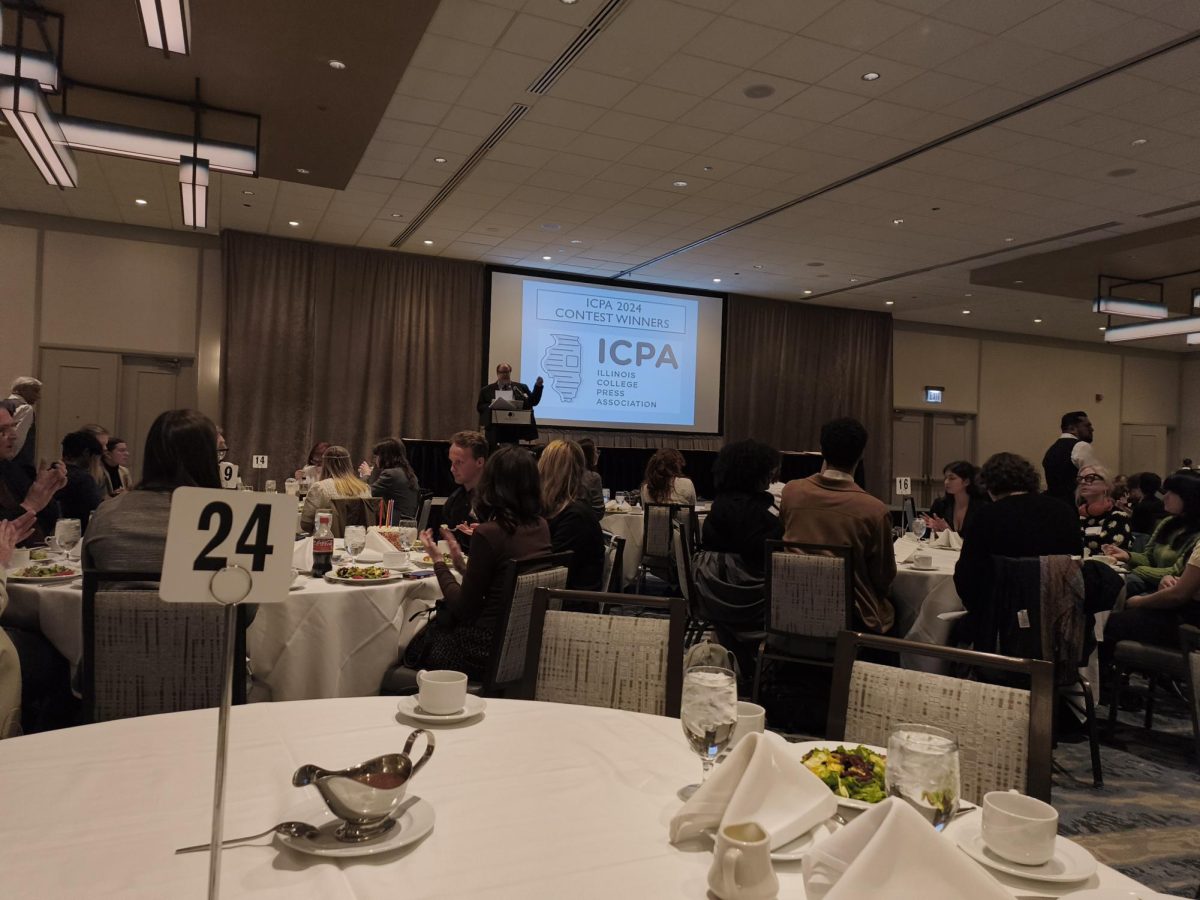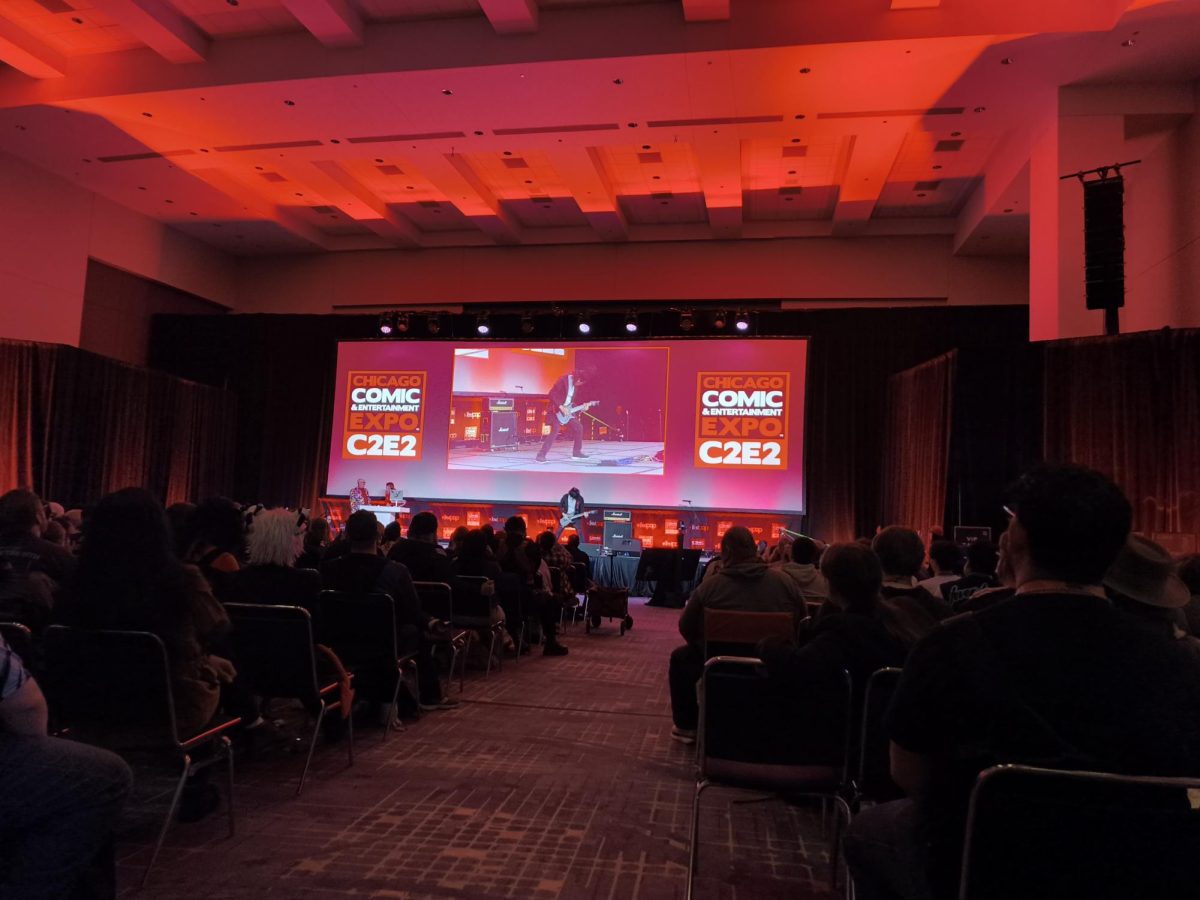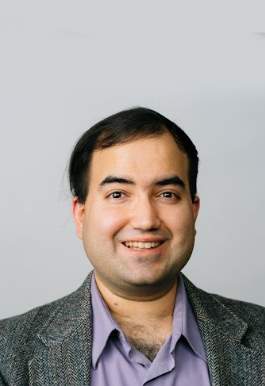Throughout October, the Pedroso Center hosted the four-part series “To Date or Not To Date? Healthy Relationships Workshops” sponsored by the K(NO)W MORE Team. Annette Brandt, program director of K(NO)W MORE, regarded the workshop series as helping students better understand what is considered a healthy and unhealthy relationship.
The workshops aimed to give dating and relationship advice to students with topics including “Is my relationship healthy,” “Red flags vs. Green flags,” “Setting boundaries” and “Warning signs.” The Independent was able to attend the final workshop.
“Research shows us that people are actually better at recognizing harm in other people’s relationship[s] than they are at recognizing harm in their own relationship,” said Brandt to the Independent, “What we were teaching is some fundamental principles about bystander intervention, and those things can certainly be applied to ourselves and our own relationships.”
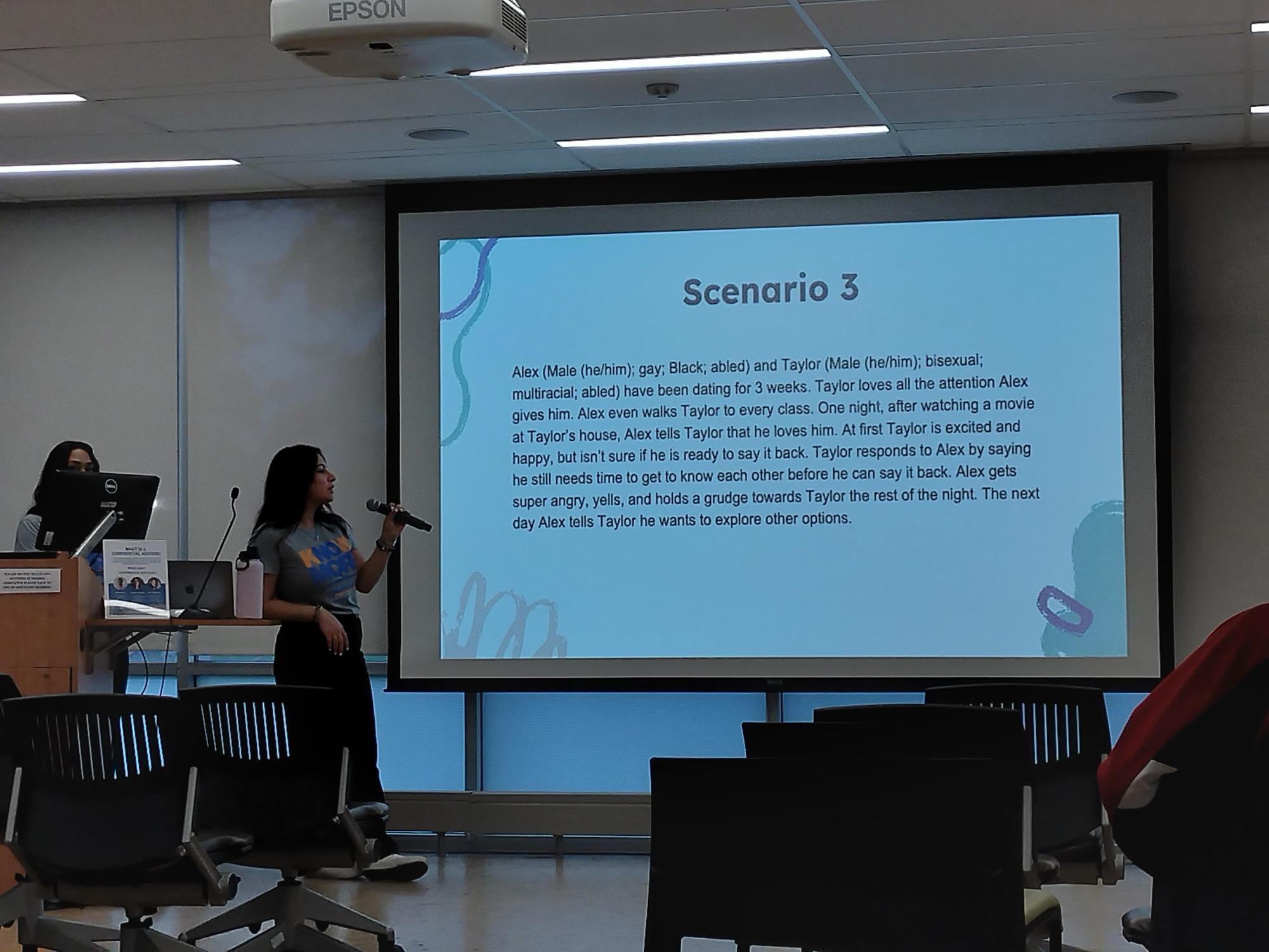
Abby Heggem, an undergraduate psychology student, who attended the fourth workshop, said, “I guess I kind of expected that it was about preventing domestic violence and sharing about ways to help people in that [specific] situation.”
Heggem’s inference is partially correct because the workshops included a colloquy about bystander intervention with the 5 D’s, which are to direct, distract, delegate, document and delay. The purpose of the 5 D’s are keeping safe, staying secure and protecting oneself and others from harm.
The final workshop included a Kahoot session that reviewed the prior three workshops and three new scenarios. It asked the audience three questions about each scenario based on manipulation, control, violation of boundaries, extortion, blackmail and emotional abuse.
The first scenario featured a couple where one individual controlled the attire of the other individual by threatening to break up. The second scenario featured a couple where one individual read the other’s text messages, while saying it is for his/her protection. The third scenario featured a couple where one of the individuals dropped the L-bomb after being together for three weeks, while the other individual was not ready to reciprocate, which resulted with the threat of breaking up by not saying it.
“I feel like when people think of abusive relationship[s], they think of sexual violence or physical violence, where these [scenarios] were more like emotional violence,” said Heggem.
Afterwards the facilitators asked additional questions to the audience such as, what the student would do in the situation or how to help a friend experiencing it, the most optimal bystander intervention and the warning signs.
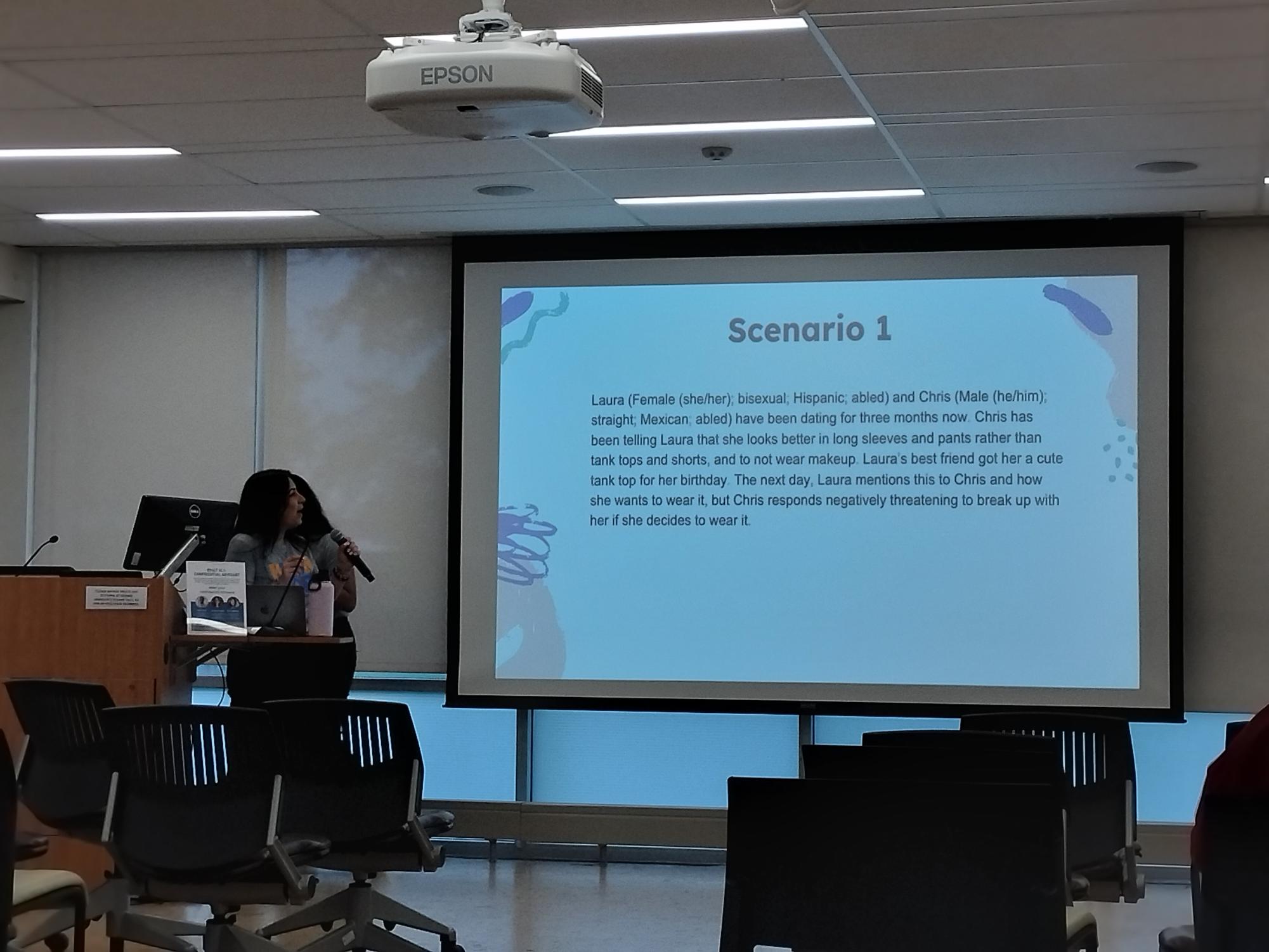
“Five years ago, I was in an unhealthy relationship, and a lot of the things that they showed here [at the final workshop] were things that happened in that relationship,” said Heggem, who was in middle school at the time of the relationship, which involved her being ignored for periods of time, but still sought out attention from her. “If I was in that relationship, and I came [to this workshop], I think I would still be in denial of what happened to me,” said Heggem, “[by] com[ing] up with an excuse that ‘oh that wasn’t gaslighting or whatever.’”
On that note, Brandt said, “people have to experience life before they figure out what is acceptable to them and what’s not.” She went on to say students must discover their preferences, boundaries, needs and desires before knowing what type of relationship advice is useful to them. “Each student is going to have to answer that for themselves depending on what [or] where they are in their dating life or their current relationship,” said Brandt.
The workshop heavily emphasized relationship dynamics, potentially alienating individuals without prior relationship experience who sought guidance in establishing healthy connections from the ground up. Heggem said, “I feel like a workshop like this would be more beneficial if it was catered to people who haven’t been in relationships before, but keeping it kind of catered to both is also helpful.”
According to the program director, some of the content of the workshops focused on students who are currently in relationships, who have experienced some form of harm and need help with finding confidential advisors. Brandt has witnessed students who participated in the workshop undergo a revelation concerning their relationships. Brandt said, “There could be a plethora of reasons for why somebody might not be able to leave.” Brandt went on to say that some of the reasons could be financial security, adequate resources, housing needs, sponsoring a green card and not fully comprehending the dangers of being in an abusive relationship.
*
In some of the workshop segments, Brandt taught attendees to recognize early warning signs of harm and be able to make a decision on either working together to improve the relationship or ending it to enforce boundaries. Brandt elaborated that boundaries must be respected, and autonomy over one’s body must be granted to be in a healthy relationship. As an example of what people might go through in their understanding of boundaries in their early years, Brandt gave this example. “As a young child, if you are forced to hug your relatives that you don’t want to hug, it’s going to be harder to find your voice as a young adult saying, ‘no I don’t want that, no I don’t like that.’”
“Everyone is going to experience harm in some fashion in their life in different relationships, it’s unavoidable,” Brandt later went on to say, “But what we realize is that people who have grown up in harmful relationships in their home [makes] it murkier and more difficult for people to navigate and figure out what’s healthy and what’s not healthy.” In other words, dysfunctional romantic relationships often originate from one’s upbringing or family environment.
The K(NO)W MORE Team has plans in the Spring 2024 semester for future programming. The most important themes for their programming are Stalking Awareness Month in January, Valentine’s Day in February and Sexual Assault Awareness Month in April. In addition, Brandt wants to collaborate with Student Health Services to promote healthy and safe sex for students in relationships and an event focused on students who have never been in a relationship.
One possible event is a Cute or Concerning Workshop, which would evaluate situation-type scenarios about deciding and discussing the elements of a relationship. Brandt said about this event, “On your third date, [a partner may] ask to see your phone and go through all of your text messages and contacts, [and] is that cute or is that concerning?” By continuously evaluating relationship scenarios, students are given “a way of setting a precedent for how things are going to go,” said Brandt.
The K(NO)W MORE Team is looking for interns who would like to contribute to future relationship and dating workshops by featuring new recommendations, ideas, posting to social media and drawing newcomers into the discourse. They want to draw more students of all genders, ages and generations into focus groups to discover ways to motivate more men to support healthy relationship advocacy, good dating habits and the prevention of dating violence. To inquire about future workshops, contact a-brandt@neiu.edu or (773) 442-5858.



